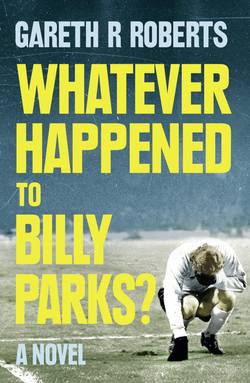Читать книгу Whatever Happened to Billy Parks - Gareth Roberts - Страница 6
ОглавлениеPrologue
17 October 1973
Wembley
The Unbearable Weight of Failure
They had to win. That was all.
If they won, everything would be alright. If they won, there would be happiness; the rest of the English autumn would be mellow and misty, then the winter would be brilliant white with snow, and Christmas would be merry, then the spring would prosper giving rise to a World Cup in the summer in West Germany.
They just had to win. That was all. Against Poland. That’s all.
We all remember it; even if you weren’t born, even if you hate football, even if you don’t remember it, you remember it because everything changed that night. That night, all they had to do was win. They didn’t win. They drew.
Mr Clough had said their goalie was a clown. And Mr Clough was always right. The BBC showed the game live so that we could all revel in the joyous tension that would precede the campaign to reclaim the World Cup, England’s World Cup.
Sir Alf picked three strikers: Channon, Chivers and Clarke. They would score, because the Polish goalie was a clown.
And Billy Parks was on the bench.
Billy Parks: the best of all of them; the most natural, the most beautiful, the most easily distracted, as he carried the immense weight of his talent on his slender shoulders.
The Polish Clown saved from Chivers.
The Polish Clown saved from Currie.
The Polish Clown saved from Clarke, then Channon, then Channon again.
Then. Then. Then. Norman Hunter didn’t tackle Lato, the Polish midfielder. Norman Hunter, who normally took bites out of human legs, who never let anyone past him, missed the tackle and Lato played it through to Domarski who sent it tamely past Shilton. They weren’t winning. They were losing.
Attack.
The Polish Clown saved from Chivers and Channon and Clarke and Hunter and Bell.
Then Clarke scored a penalty. But that wouldn’t be enough. They had to win.
And Billy Parks sat on the bench. In between Kevin Keegan and Bobby Moore. His knees drawn into him against the cold, his mind wandering to the two hundred and fifty quid he’d bet on an England win.
A win that would make everything alright. A win would bring colour to the grey beige of the seventies. A win would change everything.
But the Clown saved every shot that came his way.
So Sir Alf looked to his bench. Destiny called for someone. Sir Alf looked at his bench and thought about which valiant hero would bring forth triumph. Who would forge their name in the fires of destiny. Score a bloody goal.
Billy Parks sat, cold. He avoided Sir Alf’s gaze, his mind on the barmaid from the Golden Swan whom he would pick up later in his inferno-red TR6.
Eventually, because he knew he had to, he looked up. Five minutes to go. He looked towards Sir Alf and Sir Alf looked away from him and called upon Kevin Hector. Kevin Hector would deliver the goal. Kevin Hector would make everything alright. He had scored over 100 goals for Derby County. He was reliable. We would be alright – wouldn’t we?
England got a corner. Tony Currie swung it in. For once, the Clown was nowhere, he was beaten by the flight of the ball. The ball fell on to the head of Kevin Hector. This was his chance. This was his chance. This was his destiny. He headed it towards the goal. The Clown was beaten.
Kevin Keegan and Bobby Moore rose up from the bench. Billy Parks didn’t move.
The ball went towards the goal. Just a ball heading through time and space. It means nothing. It means absolutely everything. All England has to do is win. One goal would do it.
The ball left Kevin Hector’s head and went towards the goal-line. Everyone stood up, everyone waited for the goal, everyone waited for the triumph, for the tension to be broken, for everything to be alright. But it wasn’t a goal. The net didn’t bulge. A Polish defender kicked it off the line.
Keegan and Moore sat down again. Sir Alf sat down again. Parksy looked towards the crowd. The mass of grey faces. Kevin Hector’s destiny was fulfilled. The man who missed the chance.
If only things had been different.
Perhaps they could have been.
Perhaps they could be.
(Taken, in part, from the little known, but highly acclaimed, 1977 biography of Billy Parks, Parksy: The Lost Genius of Upton Park, by veteran Sunday Times football journalist, Philip Clarence.)
